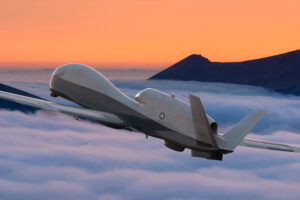
Open Season on Ghost Fleets in Wake of U.S. Venezuela Operations
Removing the ghost fleet protects the ocean environment and innocent civilians from the dangers of the often illicit or poorly stored and maintained cargo.
Defense Opinion is the essential non-partisan outlet for commentary on national security, defense spending and weapons systems. Learn More

Removing the ghost fleet protects the ocean environment and innocent civilians from the dangers of the often illicit or poorly stored and maintained cargo.

Addressing concerns about the V-22 Osprey is a necessity. But so is preserving a platform unlike any other in the U.S. inventory.
Justin Sanchez • JANUARY 5, 2026
Elevating AI and chips to national priorities is essential, but it’s also time to give biotechnology and biosecurity the same strategic focus. The U.S. should stop treating biosecurity as a low-visibility, high-impact endeavor and recommit to biotechnology as a launchpad for economic prosperity, with biosecurity as the guardrails that keep us accelerating in the right direction into the future.

Across Iran, demonstrations persist despite executions, mass arrests and militarized repression. This level of endurance reflects organization and deep popular support.

Exquisite defense tech will always have a place in satellites and intercontinental missiles, but it cannot scale to the pace of modern conflict. What does scale is commercial technology.

U.S production for key UAV electronic components, airframes and propulsion systems remains fragmented, with limited capacity for rapid surge.

The reality is that the U.S. lacks a reliable method for sharing mission data across allied forces quickly and securely.

AFRICOM is uniquely positioned to forge and strengthen the partnerships essential for building long-term stability and prosperity.

The military’s zero trust approach redefines security principles with a focus on drastically reducing attack surfaces.

Subscribe to receive our commentaries as they are published.